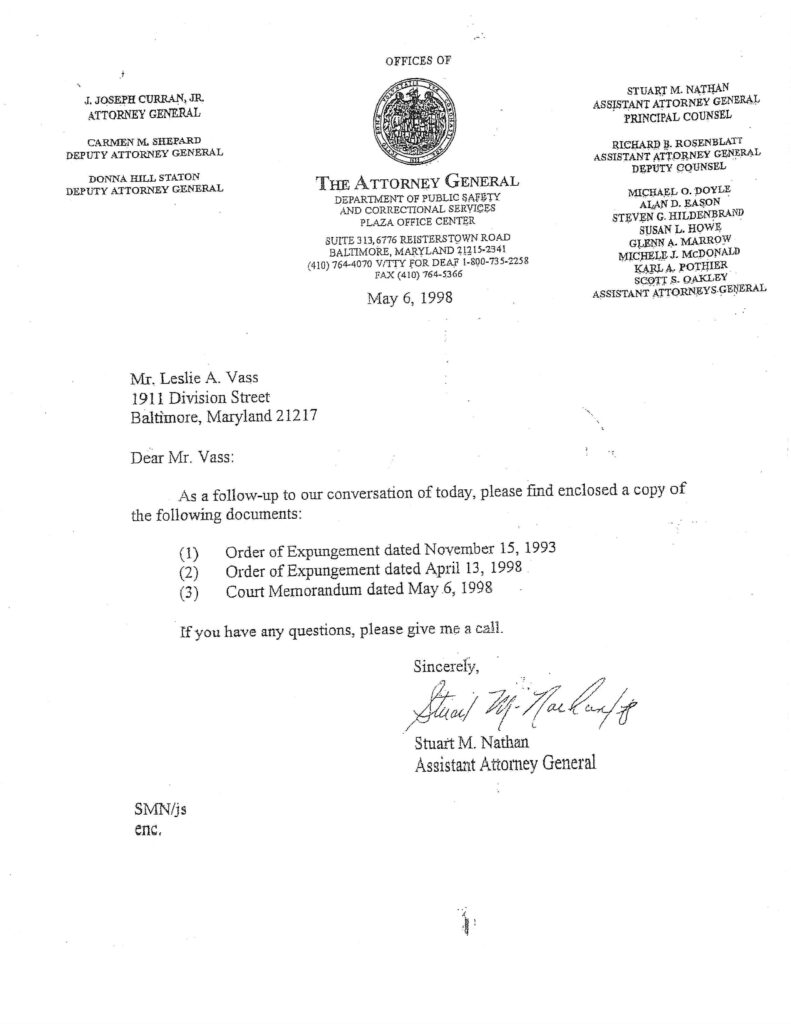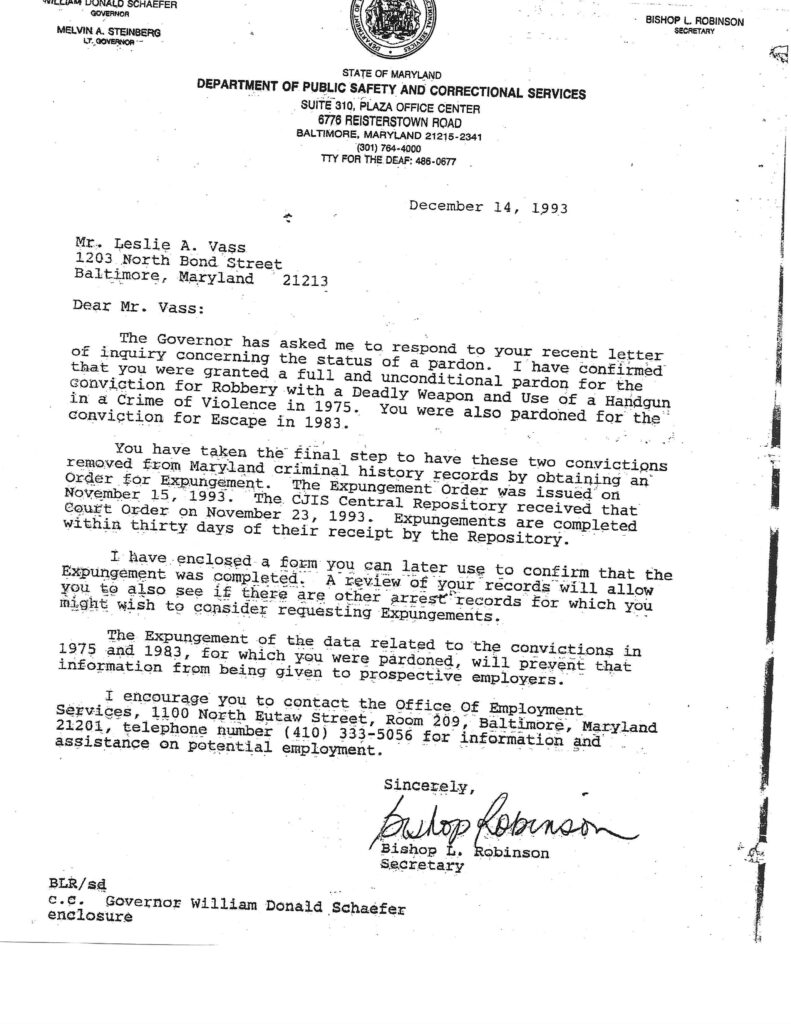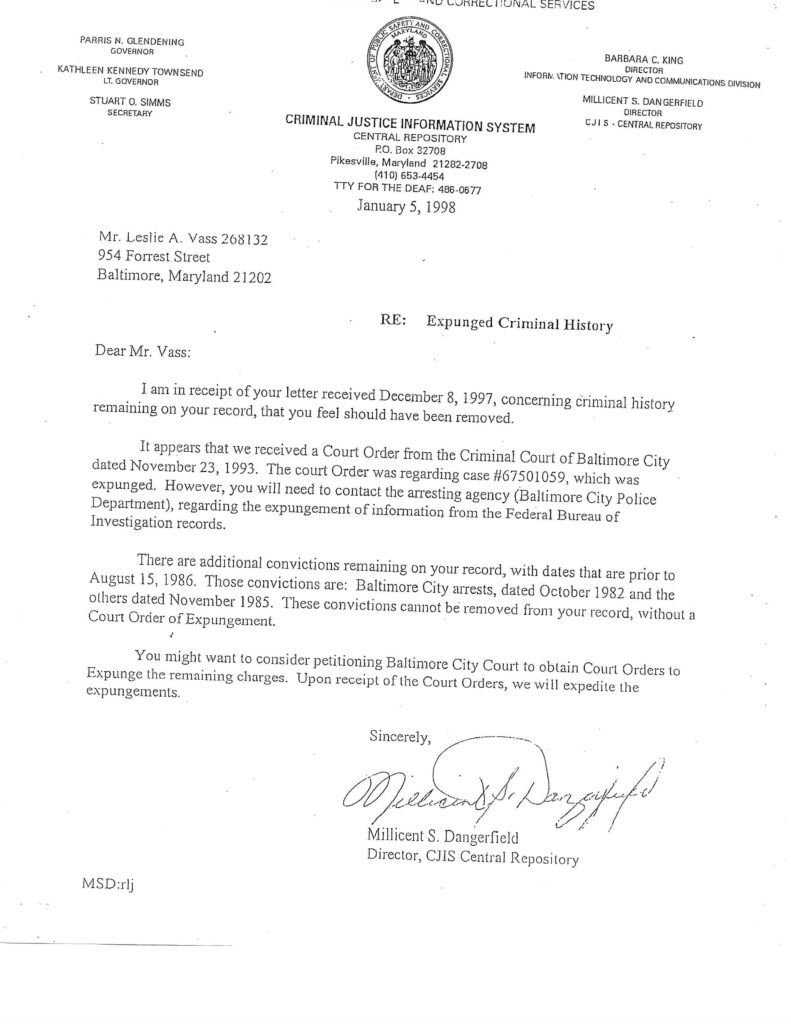When people hear the word “expungement,” they often assume that everything just… goes away. That the record disappears. That the slate is wiped clean. That life can return to normal.

But for those who have lived through wrongful convictions, like Leslie Vass, who had his record expunged not once, but twice by judges, the truth is far more complicated.

Expungement is supposed to offer relief. It’s supposed to seal or erase criminal records from public view. But in reality, it often becomes just another legal hurdle in a long, exhausting journey.
Still Marked by a System That Failed Him
Leslie Vass was exonerated, and expungement orders were granted by the courts. But decades later, his name is still tied to a record that should have been erased. Employers, housing systems, and background checks still surface misinformation. Digital databases don’t always update. News articles remain. Government systems “forget” to clean things up. And too often, nobody is held responsible for the failure to follow through.

That’s the ugly truth: even expungement isn’t respected the way it should be. The system that falsely branded you a criminal in the first place is often the same system dragging its feet when it comes to undoing the harm.
For the Wrongfully Convicted, Expungement Isn’t a Reset – It’s Another Battle
For many survivors of wrongful convictions:
- Expungement is delayed or denied without explanation.
- Records show up years later in federal or third-party databases.
- Police and courts may treat expungement like a suggestion, not an order.
- The social and psychological effects of the original charge never truly disappear.
And yet, expungement is often painted as the end of the story.
But as Leslie’s experience shows, it’s just another chapter in a long fight for dignity, restoration, and the right to move on.
So What Needs to Change?
- Enforcement of expungement orders across all databases and agencies
- Transparency in how records are stored, shared, and updated
- Automatic expungement in wrongful conviction cases
- Oversight to ensure compliance by public and private background systems
- Accountability for the damage caused by failure to honor expungement
Leslie Vass’s story is living proof: you can beat the charge, get the conviction overturned, even get a judge’s order to clear your name – and still find your past haunting you.
Justice isn’t just about what happens in the courtroom. It’s about what happens after, too.
Let’s keep fighting to make sure expungement means what it’s supposed to mean: freedom.

Leave a Reply